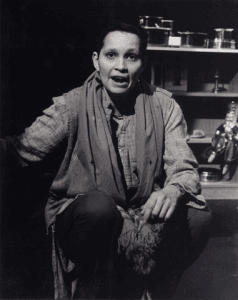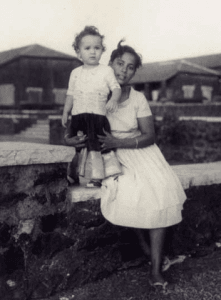Memories of an Indian Childhood at Victoria Hall, Settle
July 14, 2015
[Image courtesy of visitsettle.co.uk]
Arriving in Settle, after a beautiful summer morning had genteelly declined into a mizzly evening, there’s an overpowering sense – for better or worse – of Englishness. There’s the splendour of the Pennines always visible above the rooftops, yet the campsite is prosaically situated next to the municipal car park. Wonderful old buildings, ancient enough to seem as organic as the hills, are adorned with novelty entrants in the flowerpot festival. And the dignified calm of the handful of central streets is occasionally shattered by an eruption of lads, as cheerfully rowdy as any in the centre of Leeds, from one of the pubs.
Most English of all, at least at first sight, is the Victoria Hall, a chocolate box theatre, staffed by enthusiastic volunteers, tucked away down one of the quaint lanes that starts not far from the coach tour magnet that is Ye Olde Naked Man Café.

Settle Victoria Hall
Step inside, though, and the music is a Bollywood soundtrack, and the snack on each of the cabaret-style tables, is Bombay Mix.
An impressive, near-capacity audience has assembled by the time Sita Brand makes her appearance. Brand is herself, of course, the key to this culture clash. Born in India, to an Indian father and an English mother, she inhabited a world that partook of both cultures from the start: where there were peepal trees outside the Cathedral School and monkeys on One Tree Hill; where curry was “real food” and her mother’s meat and two veg was “bland food”; where her parents’ spells of meditating were inspired by Quakerism rather than Buddhism.
Despite the stage containing a number of cues and clues to the Indian setting, and the performance opens with Brand squatting on a low stool and drinking water from a metal cup, without allowing the cup to touch her lips: this was necessary, she explains, as the cup might have to be used by so many people. From there onwards, though, sparing use is made of them, with Brand conjuring up the world of her childhood through her words and through the amiable magic of the storyteller’s art.

Sita Brand, storyteller supreme
It’s a narrative rich in evocative detail – the sense impressions of the world that was everyday reality to her, but that seems so exotic when described here, in the Yorkshire Dales – and it gains its universality and its resonance by that very particularity. The names of best friends, ayahs, schoolgirl crushes and school bus pests are all invoked with relish.
However, the real treat comes when Brand takes on the storyteller role. To my slight surprise, she ascribes knowledge of most of the folk tales she relates, to her mother, despite the Indian flavour they all bear. The first tale, relating how the cat came to be woman’s constant companion after determining her to be the world’s dominant creature, draws a spontaneous ovation, primarily from the female half of the audience, and subsequent Jungle Book-like stories are equally spellbinding.

Sita Brand as a child
If at first it seems shocking when Brand appears to search for the right word, it only emphasises the difference in kind between storytelling and any other kind of rehearsed performance we’re accustomed to see on stage. While this show may be a mix of storytelling and reading, clearly she has, at all times, the secret of establishing rapport with the audience, reacting to them and carrying them along with her.
Returning to the narrative of her life, gradually the stories grow darker. We hear the tale of how the threat from Japan in the Second World War led to her father’s gruelling trek from Burma to Madras, during which family members were lost, and death and privation surrounded him. Concluding the performance, Brand describes the atmosphere of tension, suspicion and fear amid the revocation of human rights in the Indian emergency of the mid-70s, a situation which caused the family to uproot to England, closing that particular chapter of Brand’s life.
For an hour, the audience had hung upon every word of the storyteller recreating that most primal form of communication and entertainment through the charm of her voice and the power of her invention.
Settle has something special in Sita Brand and the celebration of the global power of story that she has brought to this small, quintessentially English, town.
More on Settle Stories.
Mike Farren
Filed under: Written & Spoken Word
Tagged with: India, Memories of an Indian Childhood, settle, settle stories, Sita Brand, Storytelling, Victoria Hall



Comments